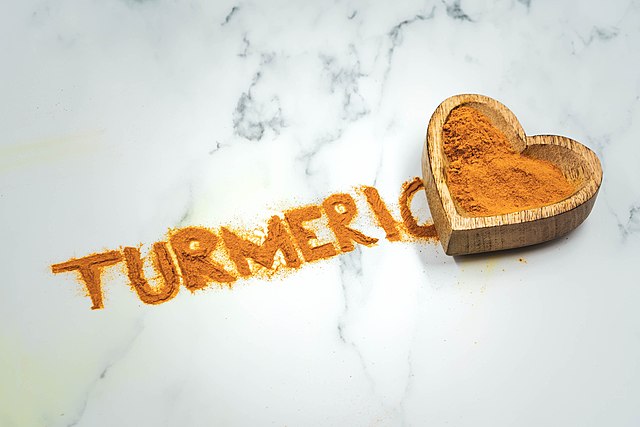Table of Contents
- Is Turmeric good for the heart?
- Can Turmeric be used for removing blood clots?
- Can Turmeric be used for lowering bad cholesterol levels in the body?
- How to take Turmeric for high blood pressure?
- Can Turmeric be used for improving circulation?
- Want to know more?
- Sources
Is Turmeric good for the heart?
Turmeric is good for the heart as it can lower the risk of heart diseases with its ability to lessen inflammation and oxidative stress. Numerous studies have yielded positive results.
One study showed that curcumin, one of the main active ingredients in turmeric, had comprehensive protective effects on the heart.
Another study showed a 65% decreased risk of a heart attack in people who have had coronary bypass surgery.
Research has also confirmed that turmeric is safe to use and may protect the heart by lowering certain cholesterol levels in the body.
In the video below, the YouTube channel “Respiratory Therapy Zone ” shows if it’s possible to use Turmeric to clean your arteries:
This is our recommended Turmeric supplement (Amazon’s Choice):

Can Turmeric be used for removing blood clots?
Turmeric can be used for removing blood clots as one study showed that curcumin, one of the active compounds in turmeric, can act as an anticoagulant.
However, more clinical evidence is required for establishing this claim.
Can Turmeric be used for lowering bad cholesterol levels in the body?
Turmeric can be used to lower bad cholesterol levels in the body as curcumin, one of the active compounds in turmeric, has been shown to lower LDL cholesterol and prevent its oxidation, suppressing plaque build-up in arteries.
Moreover, turmeric also appears to have the ability to prevent cholesterol production in the liver, inhibit cholesterol uptake in the gut, and keep the lining of arteries healthy by reducing LDL cholesterol oxidation.
How to take Turmeric for high blood pressure?
It is best to take turmeric for high blood pressure as an encapsulated turmeric supplement of 150-200 mg of curcumin per serving. This is because the curcumin in turmeric powder is very low, around 3% on average. This amount is not enough to benefit the body.
Turmeric supplements have optimum quality and quantity. To increase the absorption of turmeric, supplements also have black pepper (piperine) in them. Studies have shown that black pepper can exponentially increase the absorption of curcumin.
Can Turmeric be used for improving circulation?
Turmeric can be used to improve circulation. Curcumin, one of turmeric’s main ingredients, has been used in traditional Chinese medicine to improve circulation.
Research shows that curcumin increases nitric oxide production, lessens inflammation, and reduces oxidative stress in the body, all of which contribute to improving circulation.
One study showed that consuming 2,000 mg of curcumin daily for 12 weeks led to a 37% increase in blood flow to the forearm and a 36% increase to the upper arm.
Want to know more?
Click the links below to access the individual topic pages:
Sources
This article makes use of information from the U.S. National Library of Medicine under the terms of the Creative Commons Attribution 4.0 International License.
- Jiang S, Han J, Li T, Xin Z, Ma Z, Di W, Hu W, Gong B, Di S, Wang D, Yang Y. Curcumin as a potential protective compound against cardiac diseases. Pharmacol Res. 2017 May;119:373-383. doi: 10.1016/j.phrs.2017.03.001. Epub 2017 Mar 6. PMID: 28274852.
- Wongcharoen W, Jai-Aue S, Phrommintikul A, Nawarawong W, Woragidpoonpol S, Tepsuwan T, Sukonthasarn A, Apaijai N, Chattipakorn N. Effects of curcuminoids on frequency of acute myocardial infarction after coronary artery bypass grafting. Am J Cardiol. 2012 Jul 1;110(1):40-4. doi: 10.1016/j.amjcard.2012.02.043. Epub 2012 Apr 3. PMID: 22481014.
- Qin S, Huang L, Gong J, Shen S, Huang J, Ren H, Hu H. Efficacy and safety of turmeric and curcumin in lowering blood lipid levels in patients with cardiovascular risk factors: a meta-analysis of randomized controlled trials. Nutr J. 2017 Oct 11;16(1):68. doi: 10.1186/s12937-017-0293-y. PMID: 29020971; PMCID: PMC5637251.
- Kim DC, Ku SK, Bae JS. Anticoagulant activities of curcumin and its derivative. BMB Rep. 2012 Apr;45(4):221-6. doi: 10.5483/bmbrep.2012.45.4.221. PMID: 22531131.
- Qin S, Huang L, Gong J, Shen S, Huang J, Ren H, Hu H. Efficacy and safety of turmeric and curcumin in lowering blood lipid levels in patients with cardiovascular risk factors: a meta-analysis of randomized controlled trials. Nutr J. 2017 Oct 11;16(1):68. doi: 10.1186/s12937-017-0293-y. PMID: 29020971; PMCID: PMC5637251.
- Gupta SC, Patchva S, Aggarwal BB. Therapeutic roles of curcumin: lessons learned from clinical trials. AAPS J. 2013 Jan;15(1):195-218. doi: 10.1208/s12248-012-9432-8. Epub 2012 Nov 10. PMID: 23143785; PMCID: PMC3535097.
- Anand P, Kunnumakkara AB, Newman RA, Aggarwal BB. Bioavailability of curcumin: problems and promises. Mol Pharm. 2007 Nov-Dec;4(6):807-18. doi: 10.1021/mp700113r. Epub 2007 Nov 14. PMID: 17999464.
- Prasad S, Aggarwal BB. Turmeric, the Golden Spice: From Traditional Medicine to Modern Medicine. In: Benzie IFF, Wachtel-Galor S, editors. Herbal Medicine: Biomolecular and Clinical Aspects. 2nd edition. Boca Raton (FL): CRC Press/Taylor & Francis; 2011. Chapter 13. Available from: https://www.ncbi.nlm.nih.gov/books/NBK92752/
- Santos-Parker JR, Strahler TR, Bassett CJ, Bispham NZ, Chonchol MB, Seals DR. Curcumin supplementation improves vascular endothelial function in healthy middle-aged and older adults by increasing nitric oxide bioavailability and reducing oxidative stress. Aging (Albany NY). 2017 Jan 3;9(1):187-208. doi: 10.18632/aging.101149. PMID: 28070018; PMCID: PMC5310664.
- Santos-Parker JR, Strahler TR, Bassett CJ, Bispham NZ, Chonchol MB, Seals DR. Curcumin supplementation improves vascular endothelial function in healthy middle-aged and older adults by increasing nitric oxide bioavailability and reducing oxidative stress. Aging (Albany NY). 2017 Jan 3;9(1):187-208. doi: 10.18632/aging.101149. PMID: 28070018; PMCID: PMC5310664.


